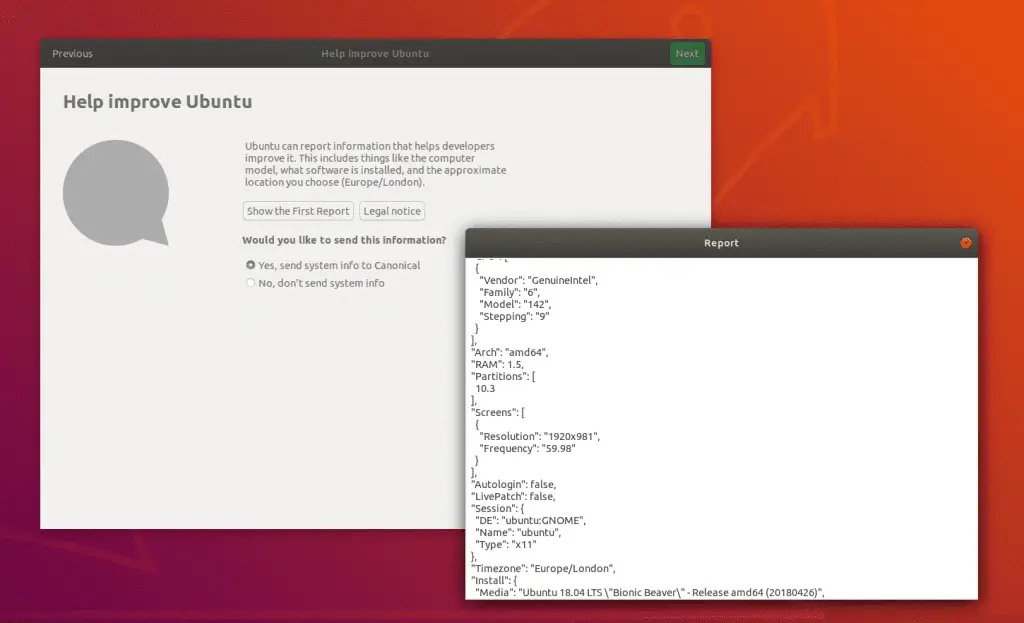
To improve Ubuntu, Canonical disclosed today the telemetry data collected by the company from April 2018. During the Ubuntu 18.04 LTS (Bionic Beaver) development cycle, Canonical announced that it would deploy an optional “not-personally-identifiable system data” in the operating system. The sharp-eyed people will see it flash across the welcome screen when they first startup.

Image: ubuntu
The collected data will be used to improve the Ubuntu Linux operating system, including software version, user settings, installed software, network connectivity, OEM manufacturer, CPU family, memory capacity, disk size, screen resolution, GPU manufacturing Business and model, and the geographic location of the user.
This helps Canonical better understand the needs of users and their accessory configurations so that Ubuntu can provide better support. The company said that the collected data announce at a certain point in time, and today we have seen the data of the starting Ubuntu 18.04 LTS (Bionic Beaver).
Will Cooke, Head of Ubuntu Desktop, said:
“This data is based on the timezone selected at installation and not on IP address geo-coding. We do not store IP address. The US has the biggest concentration, but this could be skewed by people using the defaults during installation. Brazil, India, China and Russia are also big users of Ubuntu and we have users literally all over the globe in every country!”
Based on these data, Canonical found some interesting facts:
- The average install of Ubuntu Desktop takes 18 minutes. Some machines out there can install a full desktop in less than 8 minutes! While 18 minutes is faster than many other OS installs out there we are still looking in to how we can optimise this further.
- Full HD (1080p) is the most popular screen resolution, followed by 1366 x 768, a common laptop resolution. HiDPI and 4k are not yet commonplace. 4k screens have been around for a while now but are often priced much higher than the full HD counterparts so the numbers are not entirely surprising.
- 4 & 8 GB of RAM is fairly common. 1GB is less common while 128GB putting in an appearance is a little surprising!